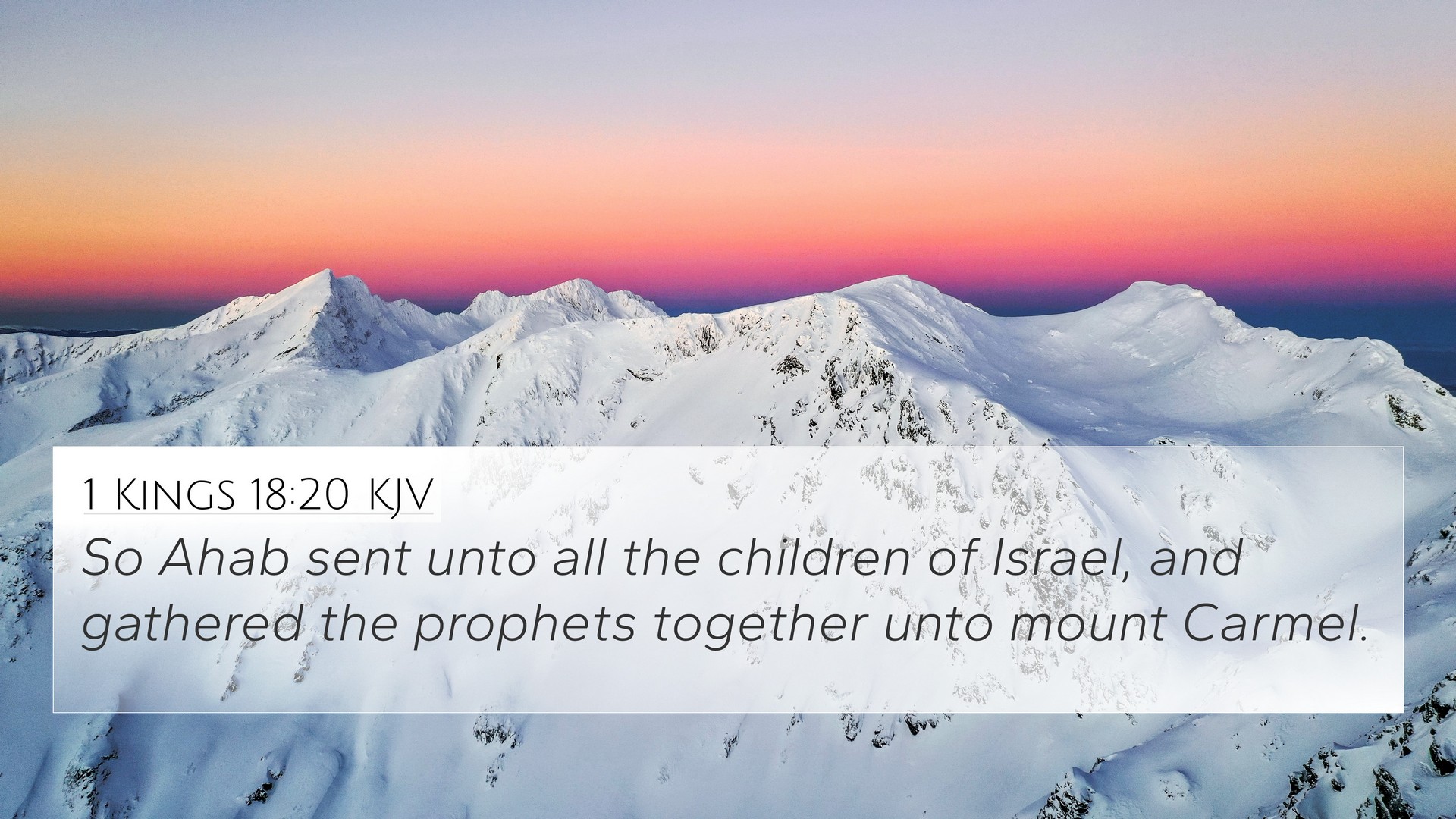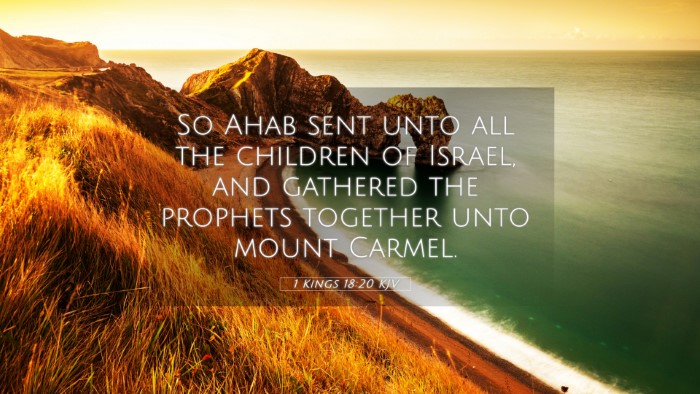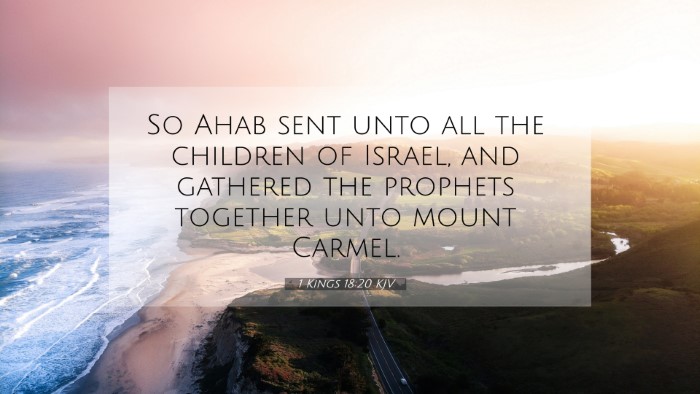Understanding 1 Kings 18:20
In 1 Kings 18:20, we find a pivotal moment in the narrative of Elijah and the prophets of Baal. This verse sets the stage for a dramatic confrontation concerning the authenticity of the God of Israel versus Baal, a false deity worshipped by many in Israel at that time.
Verse Analysis
The verse states:
“So Ahab sent unto all the children of Israel, and gathered the prophets together unto mount Carmel.”
Historical Context
This event occurs during a time of great apostasy in Israel. King Ahab, influenced by his wife Jezebel, promoted the worship of Baal, which led the nation away from the covenant with Yahweh. Elijah’s challenge to the prophets of Baal serves as a call to repentance and a restoration of loyalty to God.
Commentary Insights
- Matthew Henry: Henry emphasizes Elijah's role as a true prophet who stands against the prevailing idolatry. The gathering of the Israelites and the prophets signifies a crucial moment where the people are called to witness the truth of God’s power.
- Albert Barnes: Barnes notes the significance of Mount Carmel as a site for divine revelation and confrontation. By gathering the people, Elijah aims to solidify their choice between God and Baal, showcasing that it is time to make a decisive stand for faith.
- Adam Clarke: Clarke highlights the desperation of Israel’s spiritual condition. Ahab’s summoning of the people illustrates the urgent need for restoration, as Elijah’s challenge would be pivotal in demonstrating God’s supremacy.
Thematic Connections
This verse not only serves as a historical marker but also intertwines with broader theological themes:
- ID: 1 Kings 18:21: Elijah calls the people to choose whom they will serve, emphasizing the choice between faith in God versus the falsehood of Baal.
- ID: Exodus 20:3: The first commandment establishes the foundational requirement to worship no other gods, a central theme showcased through Elijah's challenge.
- ID: James 1:8: A passage reflecting the double-mindedness of the people, which parallels their indecision between Yahweh and Baal.
- ID: Revelation 3:16: Connecting the idea of being lukewarm in faith; God desires a firm commitment rather than indecisiveness.
- ID: Jeremiah 2:13: God laments that His people have forsaken Him, similar to the idolatry Elijah confronts.
- ID: Matthew 5:16: Encouragement for believers to shine in the darkness, reflecting Elijah's call for the people to recognize God's light amidst the deception of Baal worship.
- ID: 2 Corinthians 6:14: The call for believer separation, akin to Elijah’s challenge that demands a clear choice.
- ID: Isaiah 40:18: A rhetorical questioning of what idol could compare to God, reinforcing the futility of Baal worship versus the true God.
- ID: Psalms 115:4-8: A poignant comparison of idols that cannot speak or act, a direct challenge to the prophets of Baal’s supposed powers.
- ID: Acts 2:21: The call for everyone who calls on the name of the Lord to be saved resonates with the decision Elijah encourages.
Cross-Referencing Biblical Texts
To fully grasp the implications of 1 Kings 18:20, it's significant to employ cross-referencing. This involves connecting the text with related verses that enhance understanding:
- 1 Kings 18:21 illustrates the importance of commitment to God amidst pluralistic beliefs.
- Hosea 6:1-2 speaks of Israel's call to return to the Lord, which echoes Elijah's message.
- Matthew 12:30 reminds readers of the concept of being either for or against Christ, paralleling Elijah's stance.
Tools for Bible Cross-Referencing
For further study, various tools for Bible cross-referencing are available:
- Bible Concordance: A helpful resource for finding keywords and their occurrences throughout scripture.
- Bible Cross-Reference Guide: Useful for in-depth study that connects verses thematically.
- Cross-Reference Bible Study: Methods to dissect narratives and understand interconnected themes across books.
Applications for Readers
This verse teaches readers about the necessity of making decisive choices in their faith. It serves as a reminder of the ongoing battle against the distractions and idols of today's world. Each believer is encouraged to examine their commitment and loyalty to God, echoing the challenge posed by Elijah.
Closing Reflections
In conclusion, 1 Kings 18:20 is not merely a historical account; it is a call to spiritual action and reformation. The narratives surrounding Elijah demonstrate God’s persistent desire for His people to turn back, understand their true heritage, and wholly commit to His ways.



